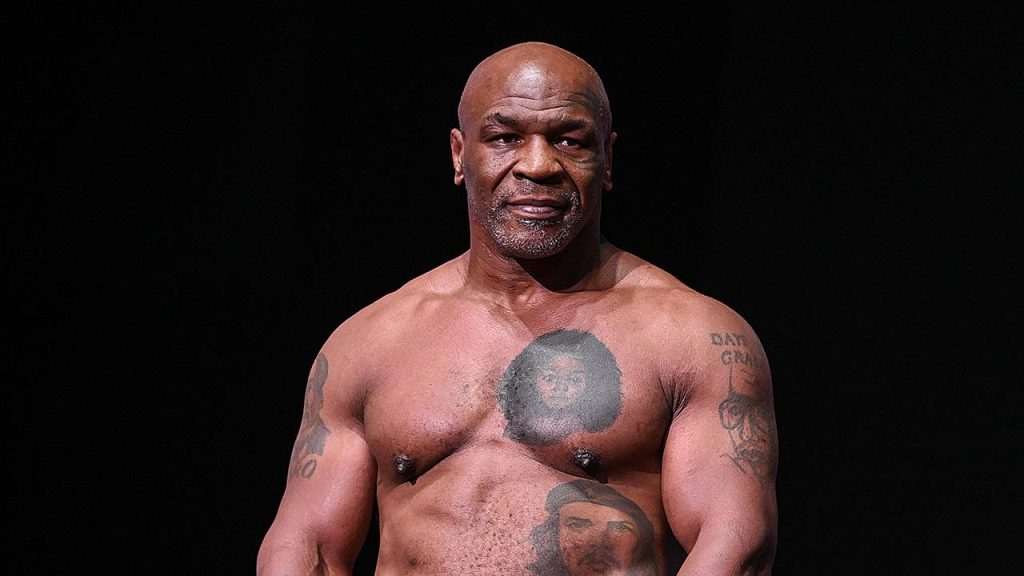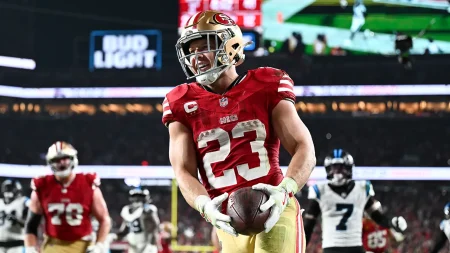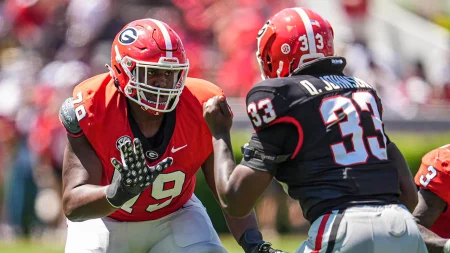Mike Tyson Opens Up About Past Drug Use and Advocates for Marijuana Reform
In a candid conversation on “The Katie Miller Podcast,” boxing legend Mike Tyson revealed surprising details about his history with fentanyl, a powerful opioid that has since become notorious in the ongoing drug crisis. Tyson admitted to using fentanyl “quite a few times” during the late 1990s, a period that marked the latter part of his boxing prime. “It was a painkiller, and I used to use it to patch up my toe,” Tyson explained, offering a glimpse into how even elite athletes sometimes turn to powerful medications to manage pain and continue competing. This revelation comes as Tyson has increasingly positioned himself as an advocate for marijuana reform, drawing a sharp distinction between what he considers harmful substances and the cannabis he believes offers genuine medicinal benefits.
The heavyweight champion’s description of his experience with fentanyl highlights the drug’s potent and addictive nature. “It was like heroin — once it wears off and you take the Band-Aid off, you start withdrawing, throwing up, just like if you were on heroin,” Tyson recounted. His comparison to heroin underscores the severity of fentanyl’s withdrawal symptoms, which he experienced firsthand. Despite these challenges, Tyson ultimately stopped using the drug when he learned about its status as a narcotic. “It was illegal if it [was] caught in my bloodstream,” he explained, adding that at the time, fentanyl was relatively unknown. “It was brand new. I told my friend ‘could I use this?’ No one ever heard of it,” Tyson said, highlighting how even high-profile athletes like himself sometimes make health decisions with limited information about substances that would later become recognized as extremely dangerous.
In contrast to his experiences with fentanyl, Tyson has become a vocal proponent of marijuana use, particularly for athletes dealing with the physical demands of their sports. “It’s not a drug. It’s medicine,” Tyson insisted during the podcast, reinforcing his belief in cannabis as a legitimate therapeutic option rather than a recreational substance. He went on to suggest that athletes “play better” when they use marijuana and expressed regret that he hadn’t incorporated cannabis into his own routine during his fighting career. This stance represents a significant shift in how many former athletes are now approaching cannabis, viewing it as a potentially beneficial alternative to conventional pharmaceuticals and pain management strategies that might carry greater risks of addiction and side effects.
Tyson’s advocacy has extended beyond mere talk show appearances. On his 59th birthday, June 30, Tyson told Fox News Digital in an exclusive interview that his future in boxing—including whether he fights again—may depend on cannabis reform progress. He has taken concrete action by leading a coalition of current and former athletes, including NBA star Kevin Durant and former NFL players Dez Bryant and Antonio Brown, who collectively signed a letter to the White House lobbying for federal cannabis reform. Their petition outlined three specific goals: rescheduling cannabis from Schedule I to Schedule III, granting clemency for nonviolent marijuana offenses, and ending what they described as “discriminatory banking practices” related to financial regulations in the cannabis industry. Among these objectives, Tyson emphasized that rescheduling cannabis was the “most important” priority.
The boxer’s push for marijuana reform reflects his personal disappointment with previous administrations’ approaches to the issue. In his Fox News Digital interview, Tyson expressed that he felt “let down” by how former Presidents Barack Obama and Joe Biden handled federal marijuana reform. Despite these frustrations, he indicated optimism about former President Donald Trump potentially taking a different approach should he return to office. This political dimension of Tyson’s advocacy illustrates how the cannabis reform movement has evolved from a fringe issue to one that crosses political lines and involves prominent figures from sports, entertainment, and business sectors arguing for policy changes based on both personal experience and emerging research.
Tyson’s journey from world champion boxer to outspoken advocate for marijuana reform represents a remarkable evolution. His willingness to discuss his past experiences with powerful drugs like fentanyl while championing what he sees as the benefits of cannabis reflects broader societal shifts in how we think about substance use, pain management, and athlete health. As more states legalize marijuana for medical and recreational use, and as former athletes increasingly speak out about their experiences with both conventional pharmaceuticals and alternative treatments, figures like Tyson are helping to reshape public perceptions and potentially influence policy decisions. Whether his advocacy efforts will ultimately lead to the federal reforms he seeks remains to be seen, but his candid discussions have undoubtedly contributed to an ongoing national conversation about drug policy, personal health choices, and the complex relationship between athletics and pain management.














